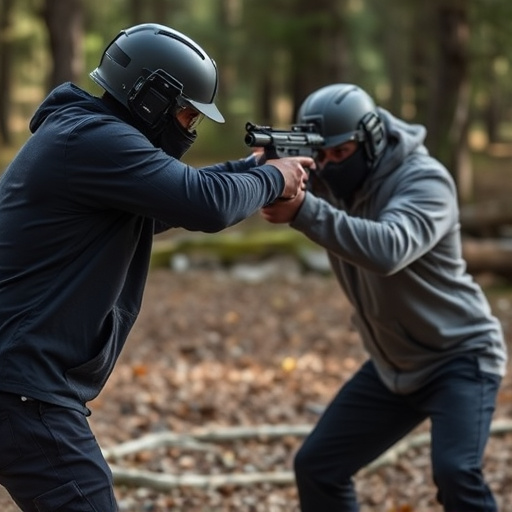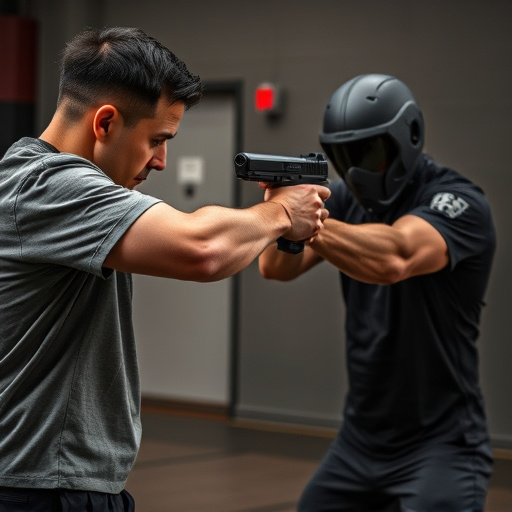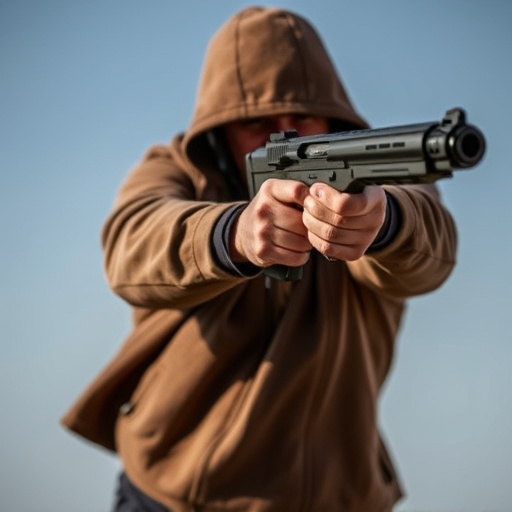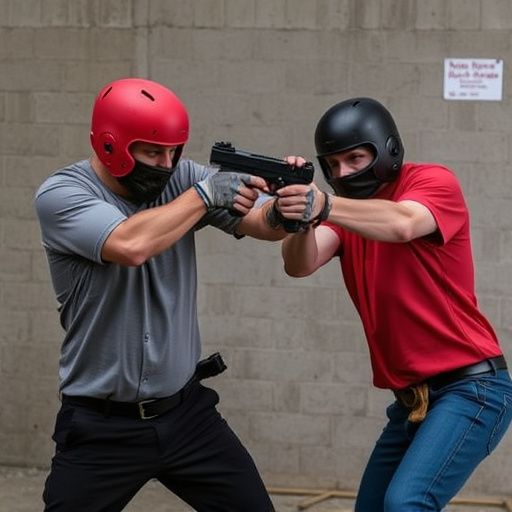Women considering civilian taser ownership, particularly concealable stun guns, must navigate a complex legal landscape that varies greatly by U.S. state. Age restrictions, background checks, training requirements, and permit systems differ widely, reflecting broader gun control policies. Understanding local regulations regarding ownership, open vs. concealed carry, and use restrictions is crucial to ensure compliance while prioritizing self-defense needs specific to women. Responsible taser use involves safety training and ethical considerations, emphasizing de-escalation techniques for public safety and respect for others' autonomy.
“Exploring the legal landscape of civilian taser ownership, with a specific focus on concealable stun guns designed for women’s self-defense, this article navigates state-by-state regulations. From understanding the legal perspective to identifying eligibility criteria and safety considerations, we demystify the process. In today’s world, empowering women to protect themselves is paramount, and concealable stun guns offer a discreet solution. This comprehensive guide provides insights into ensuring responsible use while adhering to varying state laws.”
- Understanding Concealable Stun Guns for Women: A Legal Perspective
- State-by-State Review of Ownership Requirements and Regulations
- Eligibility Criteria: Who Can Legally Own a Taser?
- Safety, Training, and Responsible Use: Key Considerations
Understanding Concealable Stun Guns for Women: A Legal Perspective

For women considering civilian taser ownership, understanding the legal landscape surrounding concealable stun guns is paramount. Many states have specific regulations regarding the carry and use of stun devices, with some allowing for concealed carry while others restrict or prohibit it altogether. These laws vary widely by state, often influenced by broader gun control policies and local priorities. Women interested in self-defense options must therefore carefully research the rules in their jurisdiction to ensure compliance.
From a legal perspective, concealable stun guns for women are typically categorized under less-lethal self-defense devices. Unlike firearms, these tools are designed to incapacitate temporarily without causing permanent harm. This distinction can impact how states regulate them, with some permitting open or concealed carry like traditional firearms and others treating them separately due to perceived lower risk. Understanding the specific requirements for ownership, including permit mandates, waiting periods, and potential restrictions on where and when they can be used, is crucial for women looking to exercise their right to self-defense while adhering to state laws.
State-by-State Review of Ownership Requirements and Regulations

In the United States, the ownership and regulation of stun guns, including concealable stun guns for women, vary significantly from state to state. This creates a diverse landscape where some states have relatively lenient requirements while others impose stricter regulations. A comprehensive review of these laws is essential for individuals seeking to legally own a concealed stun gun.
Each state has its own set of criteria that determine who can possess a stun gun, the types allowed, and whether they can be carried openly or concealed. Factors like age, background checks, training, and permit systems differ across states. For instance, some states allow open carry without a permit, while others mandate a license for concealed carry. Additionally, specific regulations may apply to certain groups, such as women seeking personal protection, with unique considerations for self-defense needs. Understanding these state-by-state variations is crucial for ensuring compliance and safe ownership of concealable stun guns.
Eligibility Criteria: Who Can Legally Own a Taser?

In many jurisdictions, the eligibility criteria for owning a taser are relatively stringent to ensure public safety. While specific requirements vary by state, there are some common factors that determine who can legally own a taser. Firstly, individuals seeking to purchase a taser typically need to be over a certain age, usually 21 or 25 years old, depending on local laws. This age restriction is in place to ensure maturity and responsible handling of the device.
Additionally, background checks are often mandatory before a person can acquire a taser. These checks verify the individual’s identity and criminal history, ensuring they do not have any disqualifying offenses or restraining orders. Some states also mandate proof of training or certification for individuals wanting to own a concealable stun gun for women, emphasizing the need for knowledge on safe usage and de-escalation techniques.
Safety, Training, and Responsible Use: Key Considerations

When considering civilian Taser ownership, safety, training, and responsible use are paramount. Tasers, being powerful tools capable of temporarily incapacitating a person, require careful handling to prevent accidental harm or misuse. Owning a concealable stun gun for women, for instance, should come with a thorough understanding of local laws regarding its possession and use. Adequate training ensures users know when and how to deploy the device safely, minimizing risks associated with its electric current.
Responsible use involves adhering to guidelines that prioritize public safety and respect for others’ autonomy. Users must be prepared to demonstrate proficiency in Taser operation during interactions with law enforcement or in self-defense scenarios. Moreover, open dialogue about the ethical implications of civilian Taser ownership can foster responsible usage, enhancing the tool’s role as a means of personal protection rather than a source of harm.
In conclusion, the legalization and regulation of concealable stun guns for women vary significantly across states, with each having its own set of ownership requirements. Understanding these laws is crucial for ensuring compliance and promoting responsible use. While many states allow qualified individuals to carry concealed stun guns, eligibility criteria often include age, background checks, safety training, and specific permits. It’s essential for prospective owners to thoroughly research their state’s regulations and prioritize safety measures to protect themselves and others in potential dangerous situations.
